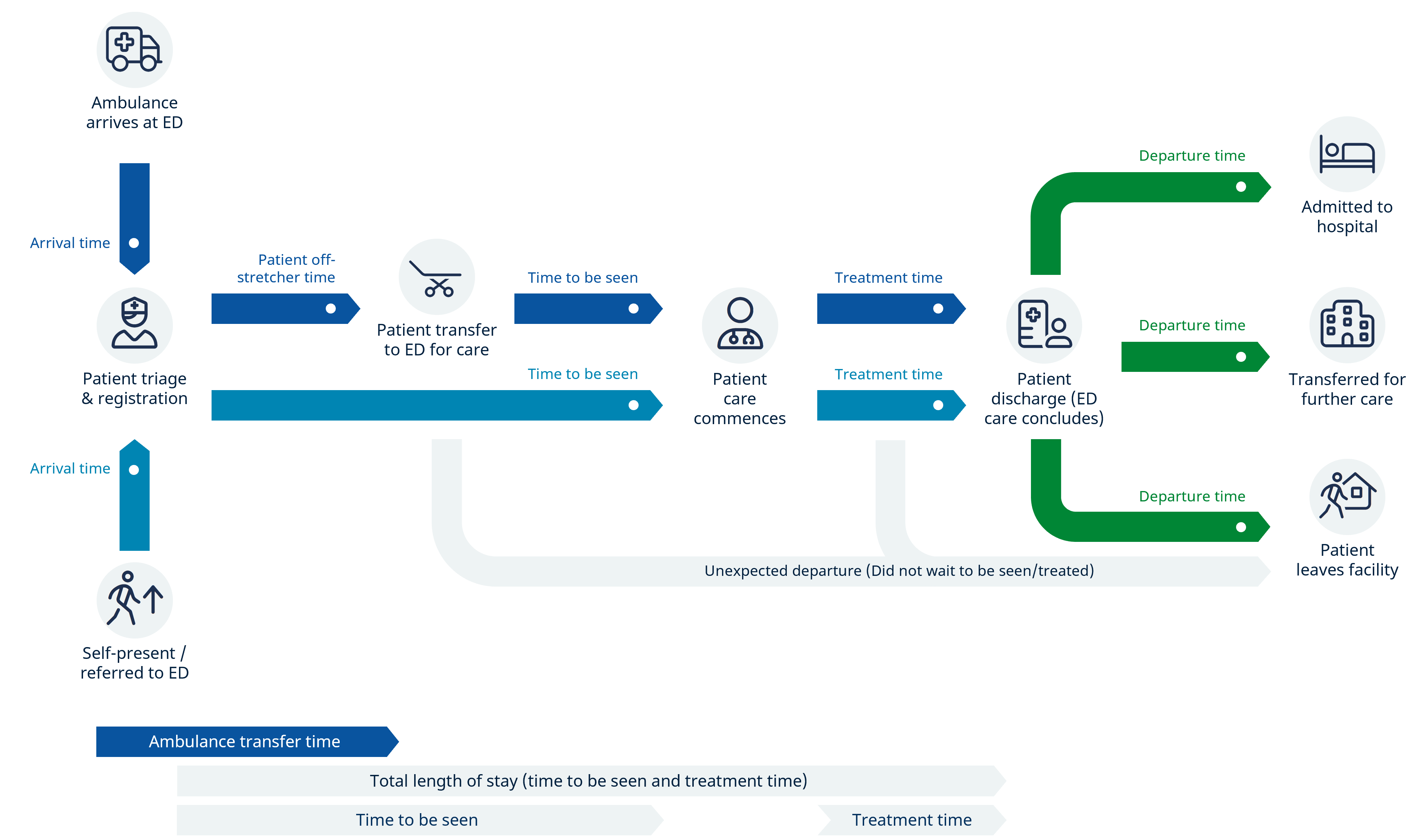What is Trauma and Illness?
Trauma and Illness includes the following range of emergency response services:
- Ambulance and aeromedical retrieval services
- Emergency departments (ED)
- Hospital acute care.
These services are focused on treating patients who present with unexpected trauma and illness. Patients accessing these services often require urgent and immediate access to care.
In addition to the above, Queensland Health offers unplanned care for non-life-threatening conditions at minor injury and illness clinics, and through the Queensland Virtual Emergency Care Service (VECS).
Do you need Emergency care now?
- If you are experiencing an emergency call Triple Zero (000).
- Alternatively, find your nearest Emergency department on the health directory website.
When to go to the Emergency department
If you’re not sure if your medical condition is an emergency
- Visit the Queensland Health 'When to go to Emergency' online guide,
- Use the online symptom checker to find the appropriate care,
- Or Call 13 HEALTH (13 43 25 84).
Trauma and Illness care patient journey

Measuring performance in Trauma and Illness
Queensland Health is committed to providing all patients with timely, effective and world-class healthcare. The Queensland Health Performance and Accountability Framework is designed to ensure that Queensland’s public health services are monitored effectively to improve the healthcare system, optimise resources and provide better experiences and outcomes for patients.
When assessing performance within Trauma and Illness, a range of measurable indicators that consider the efficiency, effectiveness and equitable access to emergency care are continually monitored and analysed.
To view the performance reporting of Trauma and Illness for the following services, click the links below:
-
Emergency care
Emergency care includes a range of critical and urgent services to help Queenslanders with unplanned medical conditions, including services provided at hospital Emergency departments (ED) and Minor Injury and Illness Clinics.
-
Ambulance
Queensland Ambulance Service (QAS) operates as a statewide service within Queensland Health and delivers pre-hospital ambulance response services, emergency and non-emergency pre-hospital patient care and transport services, inter-facility ambulance transport, casualty room services, and planning and coordination of multi-casualty incidents and disasters.
Alternative models of care
Queenslanders can seek unplanned urgent care for non-life-threatening illnesses and injuries through a number of different locations, both physical and online.
These locations provide walk-in (or click-on), care for illnesses and injuries not anticipated to be life-threatening in nature, such as simple fractures, simple infections, toothaches, minor burns and minor head injuries.
Read more about these models of care below, and click the links to find out more information and how to access each service:
-
Satellite Health Centres
Satellite Health Centres includes 7 new facilities to support public healthcare. Each satellite health centre has a Minor Injury and Illness Clinic with medical imaging and diagnostic services. These clinics provide walk-in, urgent care for illnesses and injuries not anticipated to be life-threatening in nature. Click to view a list of satellite health centre locations.
-
Virtual Emergency Care Service
The Virtual Emergency Care Service (VECS) is a statewide service staffed by doctors and nurses which allows Queenslanders to access virtual unplanned and emergency care. Queenslanders are directed to complete Healthdirect Australia’s symptom checker tool, which will ensure they are given the best care option for their condition. This may include VECS but it may also include Minor Injury and Illness Clinics, GPs or the Emergency department.
-
Medicare Urgent Care Clinics
Medicare Urgent Care Clinics (UCCs) are clinics available for all Medicare card holders to receive bulk-billed care without an appointment or referral. UCCs are staffed by highly trained medical professionals, and provide culturally safe, equitable and accessible care to all people, including vulnerable and young people. UCCs are open early and late, every day of the year. Find opening hours and locations here.